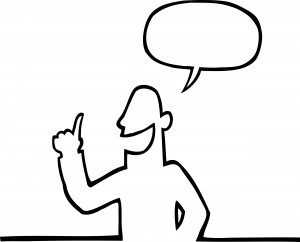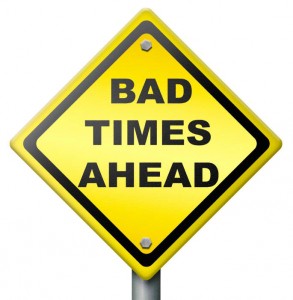 Numbers can be your greatest ally in large B2B sales, because they have a certain sense of concreteness that carries great weight in the minds of decision makers. The mere use of numerical data in a sales call or presentation sends important signals to the audience. It tells them that you are competent—you have solid information to back up your sales pitch. It tells them you are prepared, because you have taken the time to gather the data.
Numbers can be your greatest ally in large B2B sales, because they have a certain sense of concreteness that carries great weight in the minds of decision makers. The mere use of numerical data in a sales call or presentation sends important signals to the audience. It tells them that you are competent—you have solid information to back up your sales pitch. It tells them you are prepared, because you have taken the time to gather the data.
There are people who will tell you that only hard numbers count in sales—that if it can’t be measured, it does not exist. Hard numbers are those that are directly measurable; soft numbers are difficult to measure or too intangible to really count.
That advice may have contained more truth in previous days, when value in the economy consisted principally of things, but in today’s knowledge economy following that advice will cause you to leave huge amounts of value on the table. We’ve reached the point in our economy today where the value of intangible assets is almost equal to that of tangible assets, and the trend is sure to continue. In today’s increasingly intangible world, perception carries greater and greater weight, and effective salespeople know how to use it to their advantage.
Recently, I wrote a post about the importance of determination vs motivation in getting things done in life. As I said, motivation is often short-lived; people get fired up and motivated all the time, but the enthusiasm evaporates the minute they encounter pain, frustration, or failure. During those times, they need determination to carry them through.
This morning, I read an excellent article that takes it a step further in time. Cal Newport takes an even longer view (and expresses it much better than I did), with his focus on diligence, which is about sticking to a pursuit for years at a time. As he says:
We’ve created this fantasy world where everyone is just 30 days of courage boosting exercises and life hacks away from living an amazing life.
But when you study people like (Steve) Martin, who really do live remarkable lives, you almost always encounter stretches of years and years dedicated to honing craft.
Motivation is short term; it gets you started and chooses the goal. Determination gets you through the rough patches in the medium term. Diligence keeps you at it long enough to make a real difference in your life.
Want to be a great speaker, a great salesperson, or great _______? It’s simple: Do the work, learn all you can all the time, and stick with it for a long, long time.
I urge you to read Cal’s article yourself, and if you’re interested in a deep and thoughtful perspective on what it takes to succeed, follow his excellent blog, Study Hacks.
 I’ve worked with thousands of bright and articulate people in my twenty plus years of training, people who are justly confident of their ability to rise to the occasion and think fast on their feet, whether it is in a sales call, an important presentation to their boss, or the give-and-take of internal meetings.
I’ve worked with thousands of bright and articulate people in my twenty plus years of training, people who are justly confident of their ability to rise to the occasion and think fast on their feet, whether it is in a sales call, an important presentation to their boss, or the give-and-take of internal meetings.
That confidence is usually an asset, but it often veers dangerously into overconfidence which leaves them vulnerable to error and discourages the preparation that could make them even better than they already are.
Here’s just one example. In teaching sales call planning I have salespeople list the top objections they expect to hear from their customers during the call, and next to it, jot down the key points they would use to answer the objection. Most salespeople find the first step easy to do, because they’ve heard some of the same objections over and over hundreds of times. Yet, because they’ve heard them so often, they usually resist writing something in the second column, because the answer is so obvious to them in their own minds. Unfortunately, when they role-play the call, and get the same objection they have heard over and over, they almost always fumble a little, as if they are re-inventing a good answer every single time. When we debrief the role plays, they will usually admit that they could have expressed the answer better.
I know that at least one of my readers is headed to Davos this week for the World Economic Forum, the annual gathering of world leaders, business titans, economists and other assorted experts, who come to find out what some of the world’s foremost experts have to say about our future.
The rest of us will have to find out what they say via the news media, but the point of this article is that it won’t be a good idea to take what they say literally and rush out to buy survival supplies. Regardless of how famous the speaker—in fact, because of how famous the speaker—be very, very skeptical. And don’t return home and start spreading the gloom and doom you are sure to hear.
The general theme of all the talks will be about how screwed up our system is and how we should absolutely follow their advice for major changes to our economies, societies and indeed our way of thinking.




